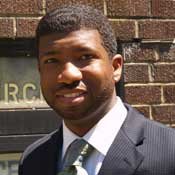You know the story: Well-off white folks are fleeing Jackson en masse to escape the encroaching "black plague." Bougie blacks are following their white counterparts by first moving into whiter areas of the city and later to the vanilla suburbs.
The white and black middle classes are abandoning the poor and desperate black masses—who, by the way, are chronically stuck in a chocolate city where mediocrity, crime and cultural pathologies flourish. The remedy to Jackson's plight, as the story goes, is getting those whites and blacks (whites, most importantly) with money back into the city to prevent impending urban demise.
This is the basic plot of the narrative preoccupying the public discourse about economic and community development in Jackson. Recent 2010 U.S. Census data revealing Jackson's decade-long population reduction has escalated media debate about the persistent power of race and class. Journalists are editorializing what they believe is wrong with us, namely: not enough (white) folks with money to help Jackson get back on track.
Others say that white racism and intra-racial black classism are the obvious reasons why folks are rushing to the suburbs. To be sure, much of the debate is right to highlight the omnipresent realities of racism and classism that help determine some people's choices to leave Jackson (or to not move here if relocating). Racial, economic and cultural bigotries cannot be ignored. They are real and sinister.
But this is not the whole story. This popular narrative, though accurate in some ways, fails to express the nuance that is evident to me. There are other variables at play, and ignoring them may cause us to miss a greater lesson. In addition to racism and classism, I offer what philosopher Friedrich Nietzsche quipped: "We are human, all too human." At a deeper, more immaterial level, humans make myriad decisions that may be conditioned by race and class, but nonetheless emerge from a more complex dimension of human longing.
This human longing can be called several things—the immigrant impulse, survival of the fittest, hedonism or what have you. At a basic level, humans are motivated by any number of wants and needs. Humanist psychologist Abraham Maslow called this our hierarchy of needs. For many folks, the need for personal and financial security, and the predictability of successful outcomes for self and family, all go into why people choose to live and shop and play where they do.
We must include this Darwinian drive toward self-preservation and passing on the gene pool, not just race or class, in our diagnoses of Jackson's urban problem. To reduce everyone's decision to move to a racial or class impetus prevents us from looking at just how basically human some of those decisions are. Reducing all this just to race and class avoids a deeper look at how all of us, from lesser to greater degrees, are shaped by our contemporary capitalistic-consumerist culture, a culture that has granted us expediency and choices ad infinitum.
Ours is a pro-choice culture populated by buffets, malls and rapidly changing personal technologies. We treat each other and make decisions about where we live much like we do our experiences in the larger consumer world in which we live and move and have our being. Larger forces condition our basic psycho-spiritual needs, influencing everything from the smart phone you own to the persons you have sex with to the churches you choose from week-to-week.
Looking at motivations psychologically doesn't necessarily provide a normative argument. I seek to simply describe another perspective that should be taken seriously as we analyze the census data and progress toward solving Jackson's population concerns. My hope is that seeing this debate from a different perspective may help us get at some of the deeper, more nuanced reasons why whites and blacks are migrating away from Jackson.
In addition to speaking with the pundits, developers and activists about the future of Jackson, we must include voices of those who will address our concerns at a level deeper than skin pigmentation and class. We need psychologists, theologians, philosophers, spiritual guides and ethicists at the table helping us envision with greater clarity the complicated and nuanced dimensions of human motivation and interaction. If we don't, we'll be telling the same old flat story 10 years from now.
The Rev. CJ Rhodes, a Hazelhurst native, attended Ole Miss and Duke Divinity School in North Carolina, where he earned his master's of divinity. He then worked as an administrative assistant to Dolphus Weary at Mission Mississippi, a Christian organization that works to bring people together. Installed in July 2010, Rhodes is the pastor at Mount Helm Baptist Church, the youngest in the church's history.


